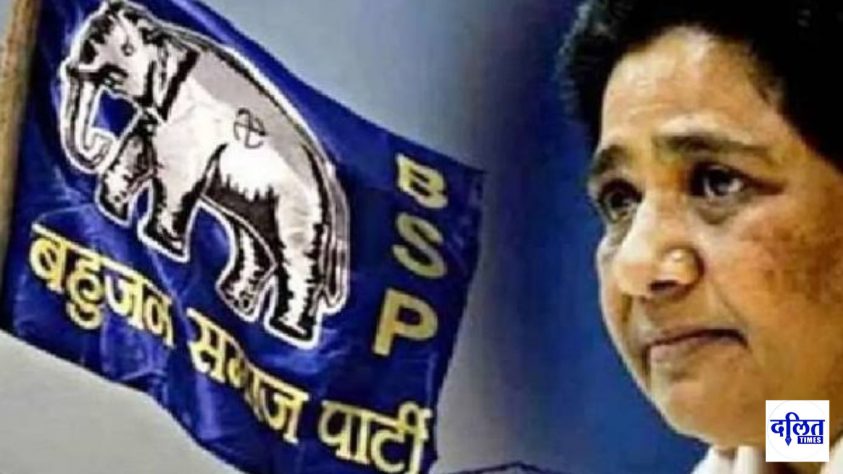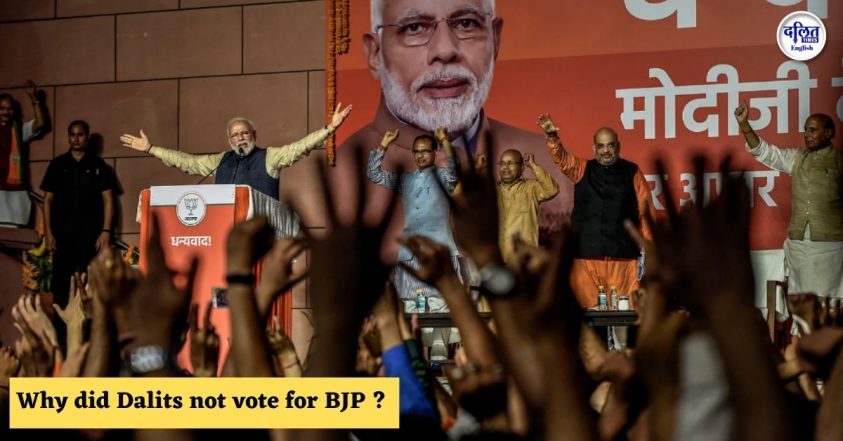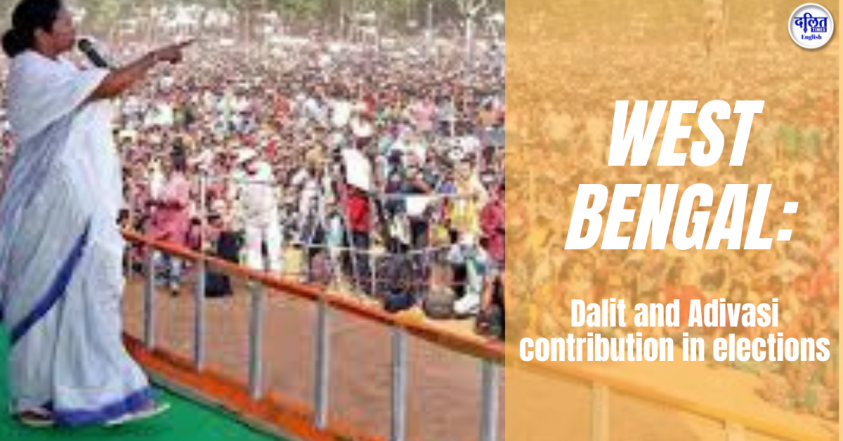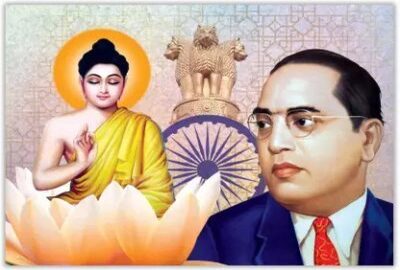BSP: Historically, Dalits, considered the lowest caste in India’s deeply hierarchical society, were not even accorded basic human dignity. The Brahmanical structure of Indian society treated them as less than human, often relegating them to inhumane conditions and denying them rights enjoyed by others. In many instances, the treatment of animals was better than that of Dalits, reflecting the depth of caste-based discrimination that has plagued Indian society for centuries. Despite its grim history, the anti-caste movement in India has a rich legacy, with several figures emerging over the years to challenge this systemic oppression.
The Bahujan Samaj Party (BSP) has its roots firmly planted in this anti-caste movement. Although the BSP today lacks significant representation in the Indian Parliament, its importance to the Dalit community remains undeniable. The party has played a transformative role in Dalit empowerment, bringing them political representation, fostering social pride, and advancing economic opportunities. Moreover, the pressure exerted by the BSP has led other political parties such as the Samajwadi Party (SP), Indian National Congress (INC), Bharatiya Janata Party (BJP), and Rashtriya Janata Dal (RJD) to include more Dalit leaders within their ranks.
The BSP’s significance goes beyond its electoral presence. In states where the party has limited political power, Dalit political consciousness and leadership are notably lacking, reflecting the BSP’s crucial role in shaping Dalit political identity. Founded in 1984 by Kanshi Ram, the BSP’s primary objective has been to represent the interests of the Bahujan Samaj—a term that refers to the majority of oppressed and marginalized communities, including Dalits, Scheduled Castes, Scheduled Tribes, and Other Backward Classes (OBCs). The BSP, thus, carries immense meaning for Dalits and other marginalized groups in India.
Political Representation: Breaking the Upper-Caste Monopoly
The BSP has been instrumental in providing political representation to Dalits, who have long been marginalized in Indian politics. Before the emergence of the BSP, the political landscape was dominated by upper castes, leaving Dalits and other marginalized communities with little to no voice. The formation of the BSP marked a turning point, providing a platform for Dalits to challenge this upper-caste dominance.
Kanshi Ram, the founder of the BSP, and later Mayawati, played a crucial role in mobilizing Dalits and creating a political base that directly confronted the caste-based power structures that had long marginalized them. The BSP’s focus on identity politics allowed Dalits to view themselves not as passive voters for upper-caste-led parties but as active stakeholders in the political process. This shift in perspective was significant because it gave Dalits agency and the confidence to demand representation in decision-making bodies.
The BSP’s rise to political power, particularly in Uttar Pradesh, India’s most populous state, was a historic moment for Dalit representation. Mayawati’s tenure as the Chief Minister of Uttar Pradesh symbolized the rise of Dalit political power. She became the first Dalit woman to lead a state government, a milestone that not only empowered Dalits but also reshaped the socio-political landscape of the state. Her leadership showed Dalits that they could not only participate in politics but also hold the highest offices in the land.
Empowerment: Dalit Pride and Material Advancement
The leadership of Kanshi Ram and Mayawati was crucial in promoting Dalit pride and self-respect. One of the cornerstones of the BSP’s ideology has been to encourage Dalits to reclaim their dignity and agency in a society that had long dehumanized them. Mayawati’s tenure as Chief Minister marked a significant period of material empowerment for Dalits in Uttar Pradesh. Her government implemented reservations (affirmative action) in government bodies, which opened doors for Dalits in employment and education.
By ensuring that reservations were implemented rigorously, Mayawati’s government provided opportunities for Dalits to access jobs and positions of authority that had historically been reserved for upper-caste individuals. Furthermore, she initiated numerous policies aimed at Dalit upliftment, including housing schemes, land reforms, and employment programs that targeted marginalized groups. These efforts resulted in a visible improvement in the socio-economic conditions of many Dalits, especially in the state of Uttar Pradesh.
Through these policies, the BSP sought to empower Dalits not only politically but also economically. The focus on economic upliftment was crucial because it sought to break the cycle of poverty and exclusion that had kept Dalits at the bottom of the social hierarchy for centuries.
Social Justice: Reducing Caste-Based Inequalities
At the heart of the BSP’s ideology is its commitment to social justice, particularly in reducing caste-based inequalities. The party has advocated for policies that aim to improve access to education, employment, and social welfare for Dalits and other marginalized communities. One of the most significant areas where the BSP has made an impact is in increasing educational opportunities for Dalits.
Mayawati’s government introduced numerous scholarship programs and reserved seats in educational institutions for marginalized communities. Additionally, the party has consistently pushed for affirmative action in higher education to ensure that Dalits and other disadvantaged groups have access to opportunities that were previously denied to them. By focusing on education, the BSP has sought to break the generational cycle of exclusion and provide Dalits with the tools to improve their socio-economic standing.
The BSP has also been vocal in advocating for economic opportunities. The party’s policies have promoted job reservations in government services and public-sector enterprises, ensuring that Dalits and other marginalized groups are not excluded from employment opportunities. Mayawati’s government initiated a range of social welfare programs, including housing schemes, land reforms, and employment initiatives, all aimed at providing economic security to marginalized groups. In essence, the BSP’s focus on social justice goes beyond political representation; it seeks to create a society where Dalits’ socio-economic rights are safeguarded, reducing the gap between historically privileged classes and marginalized communities.

Challenge to Brahmanical Hegemony: Reclaiming Power for the Majority
The BSP has always positioned itself as a challenge to Brahmanical hegemony and upper-caste dominance. The party’s slogan, “Bahujan Hitay, Bahujan Sukhay” (for the welfare and happiness of the majority), captures this objective clearly. The BSP’s political movement has been framed as a direct challenge to the centuries-old caste hierarchy, which placed Brahmins and other upper castes at the top, with Dalits and marginalized communities at the bottom.
By mobilizing marginalized communities and advocating for their political representation, the BSP seeks to redistribute power that has traditionally been concentrated in the hands of the upper castes. The party’s focus is not just on symbolic representation but also on creating policies that dismantle upper-caste privileges and redistribute resources among the Bahujan, or the majority of the population. Under Mayawati’s leadership, the BSP has served as a vehicle for Dalit assertion, calling for a radical restructuring of the socio-political order. This challenge to Brahmanical dominance is a crucial aspect of the BSP’s ideology and is central to its appeal among Dalits and other marginalized communities.
Also Read: Savitri Bai Phule: The First Woman Who Taught a Nation
Dalit Identity and Pride: Embracing Symbols of Resistance
One of the most important contributions of the BSP to Dalit empowerment has been its emphasis on Dalit identity and pride. The party has embraced symbols such as the blue flag and the image of Dr. B.R. Ambedkar, a key figure in Dalit history, to foster a sense of unity and resistance against caste oppression.
Dr. Ambedkar, who was instrumental in drafting the Indian Constitution and a staunch advocate for Dalit rights, is central to the BSP’s ideology. His fight against caste oppression and his vision of social transformation continue to inspire the party’s agenda. By celebrating Ambedkar as a hero, the BSP has helped instill pride in Dalit history and culture. His image serves as a reminder of the need to challenge the status quo and fight for equality.
The blue flag of the BSP has also become a powerful symbol of Dalit resistance and unity. Blue, the color associated with Ambedkar, represents the fight for justice and equality. By embracing these symbols, the BSP has helped create a strong sense of identity among Dalits, giving them the confidence to assert their rightful place in Indian society.
Conclusion: A Political, Social, and Cultural Force for Dalits
Thus, the BSP has provided Dalits with a political platform, a sense of social identity, and tools for socio-economic upliftment in India. While the party’s electoral presence may fluctuate, its significance to the Dalit community remains steadfast. Through its focus on political representation, empowerment, social transformation, and identity, the BSP continues to be a crucial force in challenging caste-based oppression and advancing the rights of Dalits in India.



